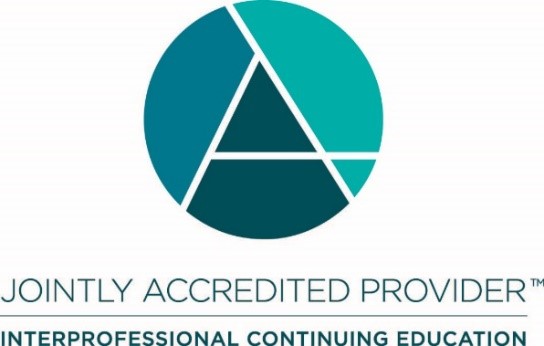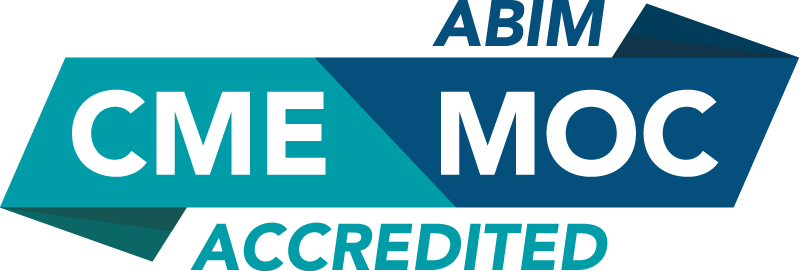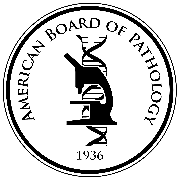NCCN 2019 Congress Series™: Lung Cancer
The treatment landscape for lung cancer, particularly non-small cell lung cancer, is constantly evolving, especially with the emergence of new biomarker testing, advances in radiation techniques, and the availability of new systemic therapies. This rapid pace of development emphasizes a need for clinicians to remain current with advances in treatment options and the management of adverse events resulting from new therapies.
This congress is designed to familiarize health care professionals with key updates in the NCCN Clinical Practice Guidelines in Oncology (NCCN Guidelines®), new and emerging therapeutic options, the latest clinical research on lung cancer, and how these advances compare to the current standard of care. Through this educational initiative, NCCN seeks to optimize the management of patients with lung cancer and to assist practitioners with incorporating new cancer treatment strategies and regimens into their practices.
Target Audience
This educational program is designed to meet the educational needs of the interprofessional oncology care team, including physicians, nurse practitioners, nurses, pharmacists, physician assistants, and other relevant health care professionals who manage the care of patients with lung cancer.
Learning Objectives
Overall Congress Objectives
The goal of this educational program is to ensure that physicians, nurse practitioners, nurses, pharmacists, physician assistants, and other relevant health care professionals who manage the care of patients with lung cancer have the knowledge and skills necessary to:
- Apply the current standards of oncology care and key updates in the NCCN Clinical Practice Guidelines in Oncology (NCCN Guidelines®) to optimize the management of patients with lung cancer.
- Review new, emerging, and novel therapeutic agents and treatment strategies and incorporate these into the management of patients with lung cancer.
- Communicate with members of the interprofessional oncology care team to improve collaborative performance in the management of patients with lung cancer.
Session Learning Objectives
Following this program, participants should be able to:
Biomarker Testing in Non-Small Cell Lung Cancer
- Review new recommendations for biomarker testing to improve outcomes of patients with metastatic non-small cell lung cancer.
- Discuss recommended biomarker testing methodologies for patients with metastatic non-small cell lung cancer.
- Determine when it is appropriate to use liquid biopsies to guide treatment selection.
Radiation Techniques in the Treatment of Lung Cancer
- Describe the role of stereotactic ablative radiation therapy in patients with early-stage non-small cell lung cancer.
- Recommend appropriate consolidation immunotherapy after treatment with concurrent chemoradiation in patients with unresectable stage III non-small cell lung cancer.
- Recognize how to decrease toxicity in patients with non-small cell lung cancer receiving concurrent chemo-radiation.
Immunotherapies in Non-Small Cell Lung Cancer
- Identify the different immunotherapy regimens for patients with non-small cell lung cancer.
- Describe appropriate sequencing of therapy in patients with non-small cell lung cancer who have received immunotherapy regimens.
- Discuss the potential for immune-mediated adverse events with other health care providers and patients receiving immunotherapy.
Smoking Cessation in Patients with Cancer
- Describe the key elements of a smoking cessation treatment plan, including pharmacotherapy and behavior therapy.
- Apply the NCCN Clinical Practice Guidelines in Oncology (NCCN Guidelines®) to assess and document patient smoking history and recommend appropriate cessation treatment.
- Counsel patients about the impact of smoking and the benefits of smoking cessation on cancer treatment and patient outcomes.
New Targeted Therapies for Non-Small Cell Lung Cancer
- Select appropriate targeted therapies for patients with metastatic non-small cell lung cancer who have oncogenic driver mutations.
- Develop appropriate treatment strategies for patients with metastatic non-small cell lung cancer who have progressed on targeted therapies.
- Discuss targeted therapy with their patients with metastatic non-small cell lung cancer including the need to monitor for adverse side effects.
NCCN Medical Education Disclosure Policy
It is the policy of NCCN that every 12 months, all faculty, moderators, activity planners and all internal planning staff participating in NCCN continuing education activities are expected to disclose any financial relationships with a commercial interest as defined by the Accreditation Council for Continuing Medical Education (ACCME) Standards for Commercial Support. In addition, all faculty presentations have been reviewed for adherence to the ACCME’s Standards for Commercial Support (the provider develops activities/educational interventions independent of commercial interests [SCS 1, 2 and 6] by experts on the topics).
Per the ACCME Standards for Commercial Support, individuals who do not disclose relevant financial relationships will be disqualified from involvement in the CE activity as a content developer, planner, or presenter. A complete list of individuals’ relationships with external entities is available upon request.
Definitions
NCCN continuing education considers financial relationships to create a “conflict of interest” when an individual has both a financial relationship with a commercial interest and the opportunity to affect CE content about the products or services of a commercial interest with which he/she and/or a spouse or partner has a financial relationship.
NCCN continuing education considers “relevant financial relationships” as financial relationships in any amount occurring within the past 12 months that create a conflict of interest. NCCN does not set a minimal dollar amount for relationships to be significant. Inherent in any amount is the incentive to maintain or increase the value of the relationship.
Faculty Disclaimers
All faculty for this continuing education activity are competent in the subject matter and qualified by experience, training, and/or preparation for the tasks and methods of delivery.
Faculty presentations may include discussion of off-label use. Faculty will disclose that the use in question is not currently approved by the FDA per the product labeling.
Faculty Disclosures
The faculty listed below discloses no relevant financial relationships:
Catherine Burdalski, PharmD, BCOP, TTS
Stefanie L. Houseknecht, PharmD, BCOP
Margaret Lang, MSN, CRNP
Sandip P. Patel, MD
Michelle Turner, MS, CRNP
The faculty listed below discloses the following relevant financial relationships:
Dara L. Aisner, MD, PhD
Bayer HealthCare: Consulting Fee
Genentech, Inc.: Grant/Research Support
Loxo Pharmaceuticals: Consulting Fee
Julie Brahmer, MD, MSc
Amgen Inc.: Consulting Fee
AstraZeneca Pharmaceuticals LP: Consulting Fee
Bristol-Myers Squibb Company: Consulting Fee; Grant/Research Support
Genentech, Inc.: Consulting Fee
Merck & Co., Inc.: Consulting Fee
Syndax: Consulting Fee
David S. Ettinger, MD
AstraZeneca Pharmaceuticals LP: Scientific Advisor
BeyondSpring Pharmaceuticals: Scientific Advisor
Bristol-Myers Squibb Company: Scientific Advisor
Guardant Health: Scientific Advisor
Russell Hales, MD
Genentech, Inc.: Grant/Research Support
NCCN Staff Disclosures
The NCCN Activity Planning staff listed below discloses no relevant financial relationships:
Melissa Esplen; Mark A. Geisler; Kristina M. Gregory, RN, MSN, OCN; Kristin Kline Hasson; Rose Joyce; Karen Kanefield; Lisa Perfidio, MS; Shannon Ryan, CMP; Sarah Sinclair; Kathy Ann Smith, CHCP
The NCCN Clinical staff listed below discloses no relevant financial relationships:
Jennifer L. Burns, BS; Susan D. Darlow, PhD; Miranda Hughes, PhD; Alyse Johnson-Chilla; Ann Karosas, RPh, BCOP; Rashmi Kumar, PhD; Jillian Scavone, PhD (employed by NCCN until 7/26/19)
The NCCN Clinical staff listed below discloses the following relevant financial relationships:
Griselda Zuccarino-Catania, PhD
Janssen Pharmaceutica Products, LP: Spouse Salary

In support of improving patient care, National Comprehensive Cancer Network (NCCN) is jointly accredited by the Accreditation Council for Continuing Medical Education (ACCME), the Accreditation Council for Pharmacy Education (ACPE), and the American Nurses Credentialing Center (ANCC), to provide continuing education for the healthcare team.
Physicians
NCCN designates this live activity for a maximum of 4.75 AMA PRA Category 1 Credits™. Physicians should claim only the credit commensurate with the extent of their participation in the activity.
Nurses
NCCN designates this educational activity for a maximum of 4.75 contact hours.
Pharmacists
NCCN designates this knowledge-based continuing education activity for 4.75 contact hours (0.475 CEUs) of continuing education credit. UAN: JA4008196-0000-19-079-L01-P
Physician Assistants
NCCN has been authorized by the American Academy of PAs (AAPA) to award AAPA Category 1 CME credit for activities planned in accordance with AAPA CME Criteria. This activity is designated for 4.75 AAPA Category 1 CME credits. PAs should only claim credit commensurate with the extent of their participation.
American Board of Internal Medicine Maintenance of Certification (MOC)

Successful completion of this CME activity, which includes participation in the evaluation component, enables the participant to earn up to 4.75 medical knowledge MOC points in the American Board of Internal Medicine’s (ABIM) Maintenance of Certification (MOC) program. Participants will earn MOC points equivalent to the amount of CME credits claimed for the activity. It is the CME activity provider’s responsibility to submit participant completion information to ACCME for the purpose of granting ABIM MOC credit.
Aggregated participant data will be shared with the commercial supporters of this activity.
American Board of Pathology Maintenance of Certification (MOC)

This activity has been registered to offer credit in the American Board of Pathology’s (ABPath) Maintenance of Certification program. Successful completion of this CME activity enables the participant to earn up to 4.75 Lifelong Learning (Part II) credits.
Aggregated participant data will be shared with the commercial supporters of this activity.
American Board of Medical Specialties (MOC)
Through the American Board of Medical Specialties (“ABMS”) MOC Initiative to create a wide array of Maintenance of Certification (“MOC”) Activities through the ABMS MOC Directory, the NCCN 2019 Congress Series™: Lung Cancer has met the MOC requirements as a MOC Part II CME Activity (apply toward general CME requirement) by the following ABMS Member Boards:
MOC Part II CME Activity
Radiology
Available Credit
- 4.75 AAPA Category 1 CME credit
- 4.75 ABIM MOC
- 4.75 ACPE contact hours
- 4.75 AMA PRA Category 1 Credit™
- 4.75 ANCC contact hours
- 4.75 Participation
Required Hardware/software
To complete this activity, users will need:
- A device with an Internet connection
- Adobe Reader or other PDF reader software for certificate viewing/printing

 Facebook
Facebook X
X LinkedIn
LinkedIn Forward
Forward